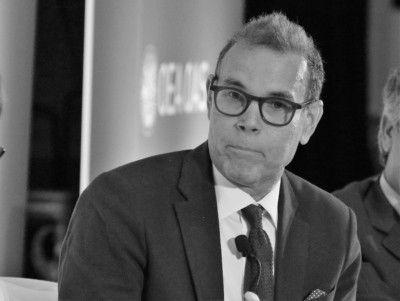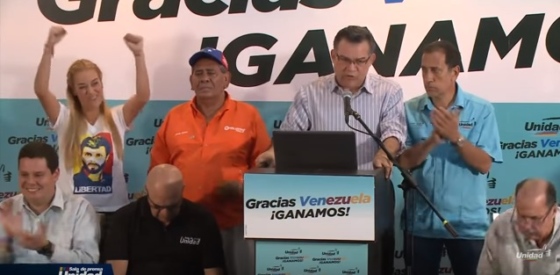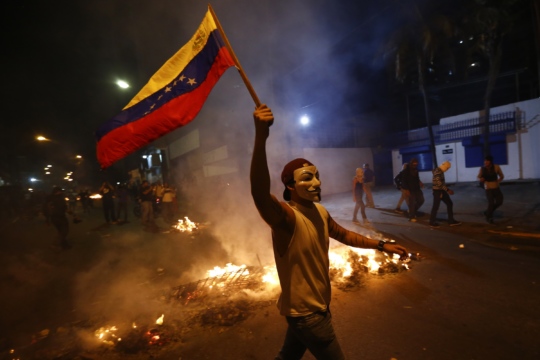
Venezuela’s Questionable Election Observers
Without credible observers, Venezuela’s December 6th elections will be another step towards disaster.
On March 24, 2022, the Inter-American Dialogue hosted a private discussion with Luis Vicente León, president of respected polling firm Datanálisis, on recent developments in Venezuela. Amid skyrocketing oil prices and a US ban on oil from Russia following its invasion of Ukraine, three senior US officials met on March 5 with President Nicolás Maduro’s government to revisit the possibility of easing sanctions on Venezuelan oil exports. While this development received bipartisan criticism, León argued that negotiations remain the most viable path to a democratic Venezuela given the failure of US sanctions policy to produce results, adding that current oil market conditions have created a potential opening to restart such talks. He also discussed other features of the current Venezuelan political climate, including a divided opposition and a deprioritization of political issues among the Venezuelan public.
León explained that US sanctions on Venezuelan oil exports have not accomplished their intended goal of removing Maduro from power. Rather, most Venezuelans believe that sanctions have contributed to their hardships. Oil sanctions have also led to the departure of Western companies, which has created a void filled by companies from China, Russia, and Iran, which are indifferent at best to Maduro’s authoritarian regime and its human rights abuses.
At the same time, according to León, in some ways, Maduro’s position has strengthened over the past several years. Dollarization and a loosening of state control over the private sector have mitigated food shortages and certain other economic problems. In response to a participant’s question, León explained that these liberalizing steps were survival measures by a Maduro government that initially faced acute economic consequences due to US sanctions.
In light of these measures, León’s polling indicates that over half of Venezuelans now think their personal situation is better than it was in 2018, and political issues have fallen dramatically among the priorities of ordinary Venezuelans. Most Venezuelans are worried instead about their particular economic situations and are disenchanted with both the regime and the divided opposition led by US-recognized Interim President Juan Guaidó, who enjoys even less public support than Maduro.
Within this context, the dynamics created by sweeping US sanctions against Russia over its invasion of Ukraine may create an opening to restart political negotiations, according to León’s analysis. The US ban on Russian oil may divert those exports to other markets like China at a heavy discount, creating competition for Venezuela’s lower-quality oil, as one participant pointed out.
Meanwhile, although US gasoline prices are largely determined by global oil prices, oil from Venezuela could replace imports from Russia at refineries on the Gulf Coast, adding to short-term US energy security. However, León emphasized that meaningful political and institutional demands should be made of Maduro in exchange for the flexibilization of sanctions, with an eye toward a long-term solution to the country’s crisis.
Still, in response to participants’ questions about whether the political space existed for such negotiations in the United States, even if behind closed doors, León sketched out a difficult road ahead. He cited the political backlash triggered by the visit of Biden administration officials and the fact that the talks were revealed publicly by the media before the administration had anything to show for them. Instead, a perceived appeasement of the Maduro regime without the Venezuelan opposition’s involvement was criticized by members of Congress with Venezuelan- and Cuban-American constituencies that support tougher measures, as well by others from both parties who did not consider the potential energy security gains to be worth negotiating with a dictator such as Maduro. In other words, according to León, a negotiation strategy based on easing oil sanctions currently lacks any real support in the US Congress, let alone a champion to back such efforts, dimming its prospects for the time being.
Yet, as the crisis in Ukraine persists and US energy security needs grow, conditions could eventually change. Additionally, on March 31, evidence surfaced that the Venezuelan government may have a more optimistic view. News broke of state oil company PDVSA’s pursuit of additional oil tankers, suggesting that it may be expecting sanctions relief after all. Ultimately, as the United States tries to balance its energy security interests with other domestic political concerns, the path forward for its policy on Venezuela remains unclear.
Without credible observers, Venezuela’s December 6th elections will be another step towards disaster.
What do the election results mean for President Nicolás Maduro and his grip on the presidency?
An economic and humanitarian crisis, precipitated by the Maduro regime, has brought Venezuela to the brink of collapse.
 © Rick Reinhard
© Rick Reinhard

